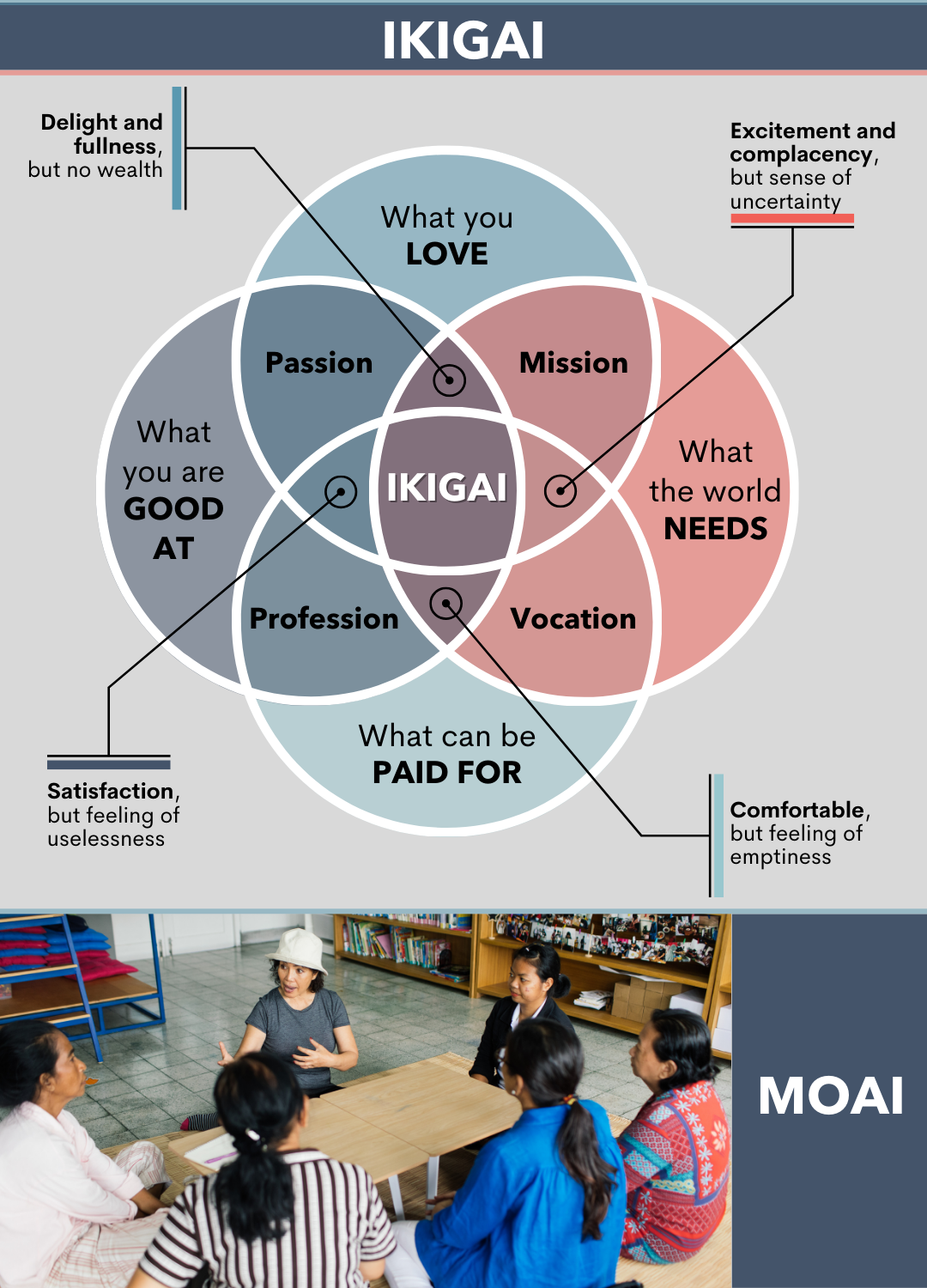by Center for Mentoring Excellence | Jan 19, 2024 | Advice for Leaders, Facilitating Learning, Group Mentoring, Growth and Development, Making Mentoring Work For You, Mentoring Communication, Mentoring Relationships
Written by: Angela McGuire | January 2024
Over the past year I have had the privilege of participating in the genesis of a Blues Zones city in the southeastern region of the United States. Blue Zones employs evidence-based solutions to help people live better and longer by making healthier choices easier where people live, work, learn, and play (www.BlueZones.com). Ikigai and Moai are two of the tenets intertwined in the Blue Zones model for living a healthier life. Though these concepts aren’t specific to mentoring, exploring their relevance to mentoring relationships unveils a unique synergy that fosters personal growth and connection.
Ikigai, often described as the intersection of what you love, what you are good at, what the world needs, and what you can be paid for, serves as a compass for individuals seeking purpose. When applied to mentoring, it becomes a guiding principle for both mentors and mentees, encouraging them to align their passions, skills, and contributions within the mentoring dynamic. Mentors, driven by their Ikigai, can provide more meaningful guidance. By identifying their own purpose and values, mentors can inspire and be a guide to their mentees as they explore their own unique intersections. This alignment facilitates a deeper connection and a more authentic mentoring experience. For mentees, understanding their Ikigai helps them set clear goals and expectations. It empowers them to actively seek mentors whose experiences and values resonate with their own Ikigai. This intentional approach contributes to a mentoring relationship that goes beyond skill development, nurturing personal and professional fulfillment.
Moai is a Japanese term for social support groups which emphasizes the importance of community and shared experiences. In mentoring relationships, Moai principles encourage the formation of supportive networks around the mentor-mentee relationship. This collective support system amplifies the impact of mentoring, providing diverse perspectives and shared wisdom. The research of mentoring scholars like Kathy Kram and Belle Rose Ragins shows the power of developmental networks such as these on mentee growth. Kram and Ragins (2007) encourage those in mentoring relationships to not only take part in developmental networks but to strengthen their value through mutual learning and fostering more connections. Mentors and mentees can engage in group discussions, collaborative projects, and shared learning experiences. This not only enriches the mentoring process but also creates a supportive network that extends beyond individual pairings. By intertwining Ikigai and Moai dynamics in mentoring, a collective sense of purpose emerges. Mentoring relationships go beyond individual journeys but also contribute to a broader community with shared values and goals. This interconnectedness enhances the overall impact, creating a ripple effect of positive influence.
In mentoring relationships, the incorporation of Ikigai and Moai principles offers a transformative approach. Mentors and mentees, driven by their unique purpose, find enhanced meaning and fulfillment in their journey together. As the mentoring landscape evolves, embracing these Japanese concepts can pave the way for more purposeful and connected relationships.
Ragins, B. R. and Kram, K. (2007). The Handbook of Mentoring at Work. Sage Publications, Inc.
by Center for Mentoring Excellence | Mar 19, 2018 | Advice for Leaders, Alignment, Assumption Hunting, Checking Out Assumptions, Facilitating Learning, Goal Setting Conversation, Group Mentoring, Growth and Development, Making Mentoring Work For You, Mentoring Communication, Mentoring Questions, Mentoring Relationships, Mentoring Training, Supporting Mentors and Mentees
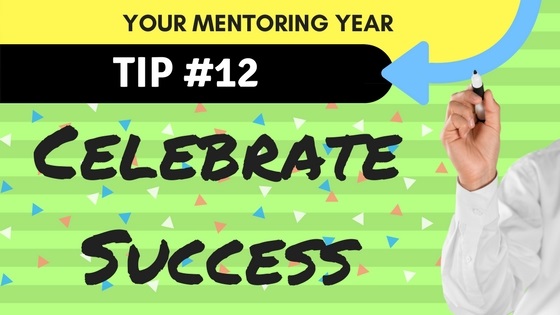
Celebrate Success!
How long has it been since you’ve taken a look at the progress you’ve made? As a mentor? As a mentee? In your business? In your personal growth?
We encourage you to take time each quarter with your mentoring partner to celebrate your achievements. What are the demonstrable improvements in outlook, behavior, performance and work satisfaction since your mentoring relationship began? Get specific and outcome-focused. We can’t fully appreciate where we are until we’ve celebrated how far we have come.
by Center for Mentoring Excellence | Mar 5, 2018 | Advice for Leaders, Alignment, Assumption Hunting, Checking Out Assumptions, Facilitating Learning, Goal Setting Conversation, Group Mentoring, Growth and Development, Making Mentoring Work For You, Mentoring Communication, Mentoring Questions, Mentoring Relationships, Mentoring Training, Supporting Mentors and Mentees
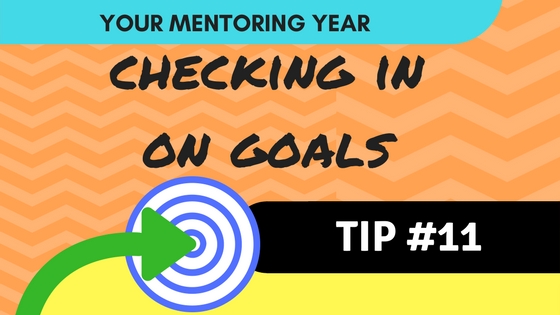
Checking in on Goals
How will you know whether or not you’re achieving your goals?
When you get results? Yes. Sometimes that’s the case.
More often the knowing and the awareness of where you are at with your goals lies in the simple, and powerful, action of checking in. You can do this on your own, with a friend, cohort or mastermind and/or with a mentor.
The real work of refreshing your memory and looking at your goals, framing them in your vision, is actually so simple that many overlook it. You won’t when you actively follow this tip.
by Center for Mentoring Excellence | Jan 25, 2018 | Advice for Leaders, Assumption Hunting, Checking Out Assumptions, Facilitating Learning, Goal Setting Conversation, Group Mentoring, Growth and Development, Making Mentoring Work For You, Mentoring Communication, Mentoring Questions, Mentoring Relationships, Mentoring Training, Supporting Mentors and Mentees
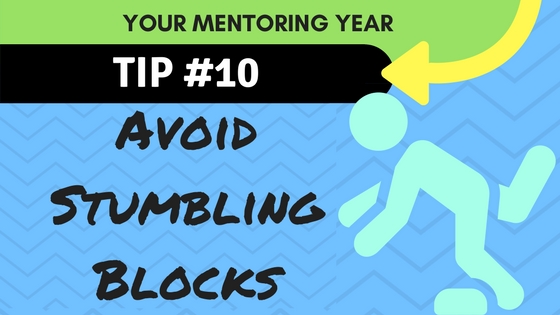
One of the biggest stumbling blocks for mentoring pairs is staying on track over the course of the year.
To make sure you avoid this potential trap, make sure you determine how to manage your mentoring time:
How often and how long will you meet?
How will you handle and reschedule cancelled meetings? Consider using an agenda, preparation, and journal as vehicles for maximizing learning. Your schedule holds and organizes your most valuable asset – your time.
For new mentor/mentee relationships, the development of an agreed-upon framework will not only set expectations, but also support focused meeting times so you both get the most out of your time together.
For more experienced pairs, referring back to the framework (or creating a new one) is a great way to a mentoring relationship back on track.
Ready for more? Review the Mentor’s Guide: Facilitating Effective Learning Relationships for more support, insight and tools.

by Center for Mentoring Excellence | Nov 22, 2016 | Facilitating Learning, Group Mentoring, Growth and Development, Mentoring Training
In September we had the privilege of working with UN Women as it launched its first formal leadership development mentoring program in Cairo, Egypt. Participants from the Ivory Coast, Egypt, Uganda, Moldova, Albania, Liberia, South Africa, Rwanda, New Delhi, Istanbul, Santo Domingo, Panama, Brussels, Copenhagen and Geneva joined us for the mentoring kickoff training.
UN Women mentees volunteered for this global initiative for a variety of reasons: They were looking to invest in their own development and take their leadership to the next level. They wanted career guidance. And they wanted candid, safe feedback. These were the things they worked on — things that would really matter!
Like other mentees we’ve worked with, this team came to mentoring with the very same concerns and questions. They wondered:
- Will I be worthy of a senior leader’s time?
- Will I be able to accomplish enough during their mentoring timetable to make the investment valuable?
- Will I feel comfortable and be able to build trust with a leader I don’t know?
- Will the feedback I receive be confidential and useful?
- Will my mentor have time in their demanding schedule to connect with me?
However, we did find some unique challenges for mentoring pairs in third-world countries, especially when trying to connect across time zones. Poor quality Internet service and gaps in time zones can make communication particularly difficult. Even so, mentoring has been value-added for these mentees, who say they appreciate the support provided by mentors and the opportunity mentoring gives them to reflect on themselves, their development and their future.
UN Women is the United Nations entity that promotes gender equality and the empowerment of women. Its Mentoring Program is designed to grow its workforce by giving mentees access to role models, tapping into networks and increasing visibility. It also helps mentors develop key leadership skills, giving them the opportunity to directly support the next generation of UN Women.

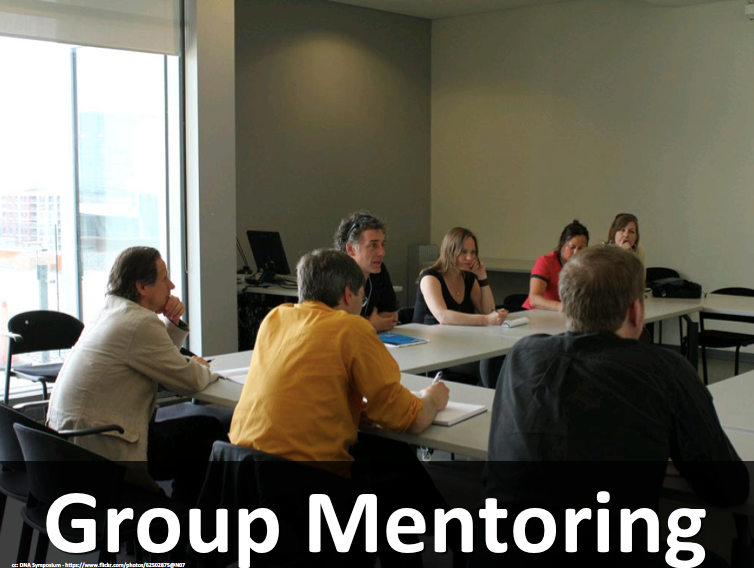
by Center for Mentoring Excellence | May 27, 2016 | Facilitating Learning, Group Mentoring
When we think of mentoring relationships, we usually think of one-on-one interactions with a mentor and a mentee. But that doesn’t always have to be the case. In fact, for many organizations, group mentoring has become an equally effective (and often more efficient) way to offer mentoring services to employees. But what is group mentoring and how does it work? Here are three ways to approach group mentoring.
Team mentoring
This one is pretty self-explanatory. A group of mentors, each with their own unique set of skills and mentoring expertise, work with mentees to give them a well-rounded and multi-faceted mentoring environment.
Note: Make sure team mentors are given the necessary tools and training to make their relationships successful.
Peer mentoring
Again, the name says it all. There’s a lot that can be learned from our fellow mentees; allowing mentees to, in turn, mentor their peers is a powerful way to reinforce mentoring practices and instill leadership qualities beyond traditional mentoring settings.
Note: Goal-setting and self-direction are key. It also helps if peer mentors have similar roles, experiences and interests.
Facilitated group mentoring
What if your mentoring journey was influenced by those seeking mentoring services just like you? Chances are, you’d be exposed to new and exciting ways of thinking. That’s the idea behind facilitated group mentoring. While you still work with a traditional mentor figure, your fellow mentees will help set agendas, group goals and influence your experience in ways you wouldn’t have otherwise been able to predict.
Note: Make sure every member of the group has a specific role and responsibility; this ensures people don’t feel left out or unheard. It also helps to limit mentoring groups to eight people or less.
So, what do you think? Is group mentoring for you? Have you tried it in the past? Let us know.
